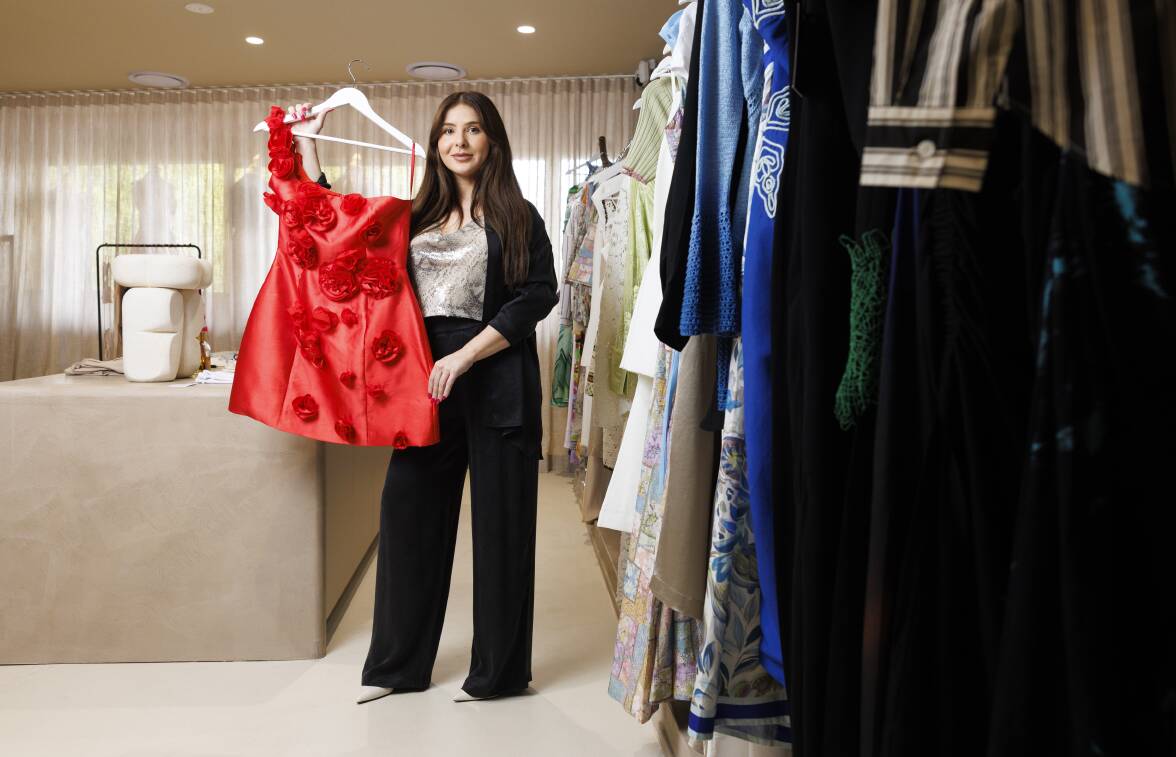Spending on clothing and shoes has surged in the ACT despite ongoing cost-of-living pressures.
Dresses have been walking out the door of Hannah Mitchell's clothing boutique in Civic.
"What we've noticed is women coming in specifically for events and special occasions, we've had loads of events on in Canberra, with things back to normal after COVID," she said.
"When people have events like a formal, a gala or a wedding they definitely haven't been afraid to splurge on a new dress."
New data from the Australian Bureau of Statistics shows a big increase in spending on non-essentials in Canberra.
Canberrans are spending 12 per cent more on clothing and shoes than in February last year, and 10 per cent more on recreational activities.

The ACT also saw a 14 per cent increase in transport spending, which is largely due to a four per cent increase in fuel prices.
Overall household spending has increased by 7.6 per cent in Canberra, higher than the country average of 3.6 per cent.
The increase could indicate that pressure is easing on people's pockets.
Head of the Bureau's business statistics Robert Ewing said they've seen a consistent recovery this year.
"I think it's a sign that consumers are starting to spend a bit more strongly after a very subdued 2023," he said.
"With the clothing spending, I think what we're seeing now is people taking advantage of sales. We also didn't see some of the normal, additional winter spending in 2023, so people might be replacing parts of their wardrobe now.
"The biggest thing for clothing in February was Taylor Swift, with big sales of clothing, accessories and merchandise, and that'll be showing up in the ABS data."
Across the country, spending on non-essential items fell 0.2 per cent, while spending on things like food, rent and electricity rose 6.9 per cent.
The increase in household spending is still largely non-discretionary items, Mr Ewing said.
"They're still driving the overall increase, while other items like clothing are growing more slowly," he said.
"That's been consistent since 2023, because non-discretionary items are where consumers looked to slow their spending first.

"However even with inflation the ACT numbers do suggest some reasonably strong growth."
For Ms Mitchell, the data gives her plenty to be optimistic about.
"It's definitely exciting. In winter people tend to stay in more because it's so cold, but we still have winter events," she said.
"Hopefully sales stay consistent and people still want to go out and buy a new dress."







